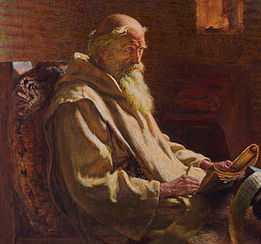735
| Millennium: | 1st millennium |
|---|---|
| Centuries: | 7th century – 8th century – 9th century |
| Decades: | 700s 710s 720s – 730s – 740s 750s 760s |
| Years: | 732 733 734 – 735 – 736 737 738 |
| 735 by topic | |
| Politics | |
| State leaders – Sovereign states | |
| Birth and death categories | |
| Births – Deaths | |
| Establishment and disestablishment categories | |
| Establishments – Disestablishments | |
| Gregorian calendar | 735 DCCXXXV |
| Ab urbe condita | 1488 |
| Armenian calendar | 184 ԹՎ ՃՁԴ |
| Assyrian calendar | 5485 |
| Bengali calendar | 142 |
| Berber calendar | 1685 |
| Buddhist calendar | 1279 |
| Burmese calendar | 97 |
| Byzantine calendar | 6243–6244 |
| Chinese calendar | 甲戌年 (Wood Dog) 3431 or 3371 — to — 乙亥年 (Wood Pig) 3432 or 3372 |
| Coptic calendar | 451–452 |
| Discordian calendar | 1901 |
| Ethiopian calendar | 727–728 |
| Hebrew calendar | 4495–4496 |
| Hindu calendars | |
| - Vikram Samvat | 791–792 |
| - Shaka Samvat | 657–658 |
| - Kali Yuga | 3836–3837 |
| Holocene calendar | 10735 |
| Iranian calendar | 113–114 |
| Islamic calendar | 116–117 |
| Japanese calendar | Tenpyō 7 (天平7年) |
| Julian calendar | 735 DCCXXXV |
| Korean calendar | 3068 |
| Minguo calendar | 1177 before ROC 民前1177年 |
| Seleucid era | 1046/1047 AG |
| Thai solar calendar | 1277–1278 |
| Wikimedia Commons has media related to 735. |
Year 735 (DCCXXXV) was a common year starting on Saturday (link will display the full calendar) of the Julian calendar. The denomination 735 for this year has been used since the early medieval period, when the Anno Domini calendar era became the prevalent method in Europe for naming years.
Events
By place
Europe
- Charles Martel, Merovingian mayor of the palace, invades Burgundy. Duke Hunald of Aquitaine refuses to recognise the authority of the Franks, whereupon Charles marches south of the River Loire, seizing the cities of Bordeaux and Blaye. Within 4 years he will have subdued all the Burgundian chieftains while continuing to fight off Moorish advances into Gaul.[1]
- King Liutprand of the Lombards raises his nephew Hildeprand to co-kingship after a serious illness (approximate date).
Asia
- During the Tang Dynasty in China, by this year there is 149,685,400 kg (165,000 short tons) of grain shipped annually along the Grand Canal.
- A smallpox epidemic starts in Japan, which reduces the population by 30%.
By topic
Literature
- The Khöshöö Tsaidam Monuments of Bilge Khan, ruler (khagan) of the Turkic Khaganate, and his brother Kul Tigin are erected.[2] (Bilge's has already erected Kül Tigin's monument and Bilge's son erects Bilge's monument.)
Religion
- May 26 – Bede, Anglo-Saxon monk-historian, dies at Monkwearmouth–Jarrow Abbey. He will be remembered as "the Venerable", and is the author of books that are copied and studied later all over Europe. His greatest book is the Historia ecclesiastica gentis Anglorum, a major source for the history of Britain in the immediate post-Roman period.
- The see of York receives the pallium from pope Gregory III and is elevated to archbishopric. Ecgbert becomes the first archbishop.[3]
Births
- Abu Yusuf, Muslim jurist and chief adviser (or 738)
- Alcuin, Anglo-Saxon missionary (approximate date)
- Du You, chancellor of the Tang Dynasty (d. 812)
Deaths
- Abi Ishaq, Arab grammarian
- Adela, Frankish abbess (approximate date)
- May 26 – Bede, Anglo-Saxon theologian and historian
- Cathal mac Muiredaig, king of Connacht (Ireland)
- Cellach mac Fáelchair, king of Osraige (Ireland)
- Eudes, duke of Aquitaine (approximate date)
- December 6 – Toneri, Japanese prince (b. 676)
References
- ↑ Pierre Riche, The Carolingians: A family who forged Europe, Transl. Michael Idomir Allen, (University of Pennsylvania Press, 1993), p. 44
- ↑ Golden, Peter B. (2010). Turks and Khazars: origins, institutions, and interactions in pre-Mongol Eurasia. Farnham, England: Ashgate/Variorum. ISBN 978-1-4094-0003-5.
- ↑ Mayr-Harting, "Ecgberht (d. 766)". Oxford Dictionary of National Biography
